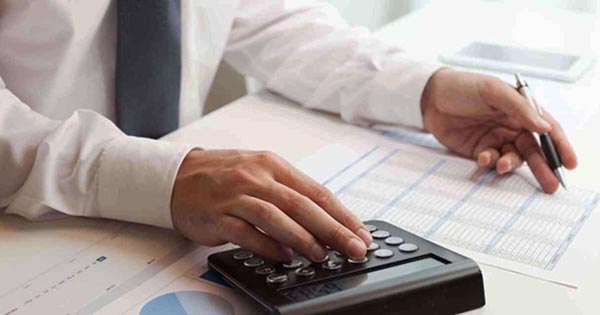Taxes, corporate income tax, progressive income tax, and value-added tax or VAT are comparatively low in Thailand, which makes it attractive to foreign investors. They also apply to other key sectors but the main taxes are the corporate income tax at 20%, the progressive personal income tax at 0 – 35%, and value-added tax at 7%. These are imposed by the Revenue Department of Thailand.
Specific Business Taxes
Some businesses are exempt from paying VAT but must instead pay the tax of their specific businesses or SBT. One of these businesses is real estate and related businesses involving immovable property. They are charged 0.1% to 3% and 10% local tax. SBT taxes are imposed on gross revenue at fixed rates. Those who are required to register as SBT operators are natural persons or a group of persons, juristic persons, government entities, and other juristic persons. Among businesses required to pay SBT are those involved in the sale of immovable property and real estate at 3%. They are also imposed a 10% municipal tax. They must file monthly tax returns up to the 15th day of the succeeding month. Penalties are imposed for their failure to register for SBT at 200% of the tax due; failure to file the monthly SBT returns, also at 200% of the tax due; inaccurate or insufficient payment of tax in their monthly filing of taxes at 100% of the underpaid or incorrect tax; and as 1.5% additional surcharge every month of underpayment or incorrect payment, which will be up to the amount of the tax due at the maximum.
Lease Registration Fee
Section 538 of the Thai Civil and Commercial Code provides that property rented out for a fixed term of more than three years must be done in writing and duly recorded on the land ownership title deed. This deed must then be kept at the provincial or local land office. If it is not registered, the lease can be enforced for only three should legal action be taken. Section 540 allows a registered lease for a maximum of 30 years. An agreement shorter than three years need not be registered but must still be done in writing to enable a possible legal action.
Lease agreements in the land offices in Thailand are written in Thai script. Even the name of a foreigner involved is in Thai script. But the script may be translated in the language readable to the non-Thai party or parties.
This fee is to be paid to the provincial or local land office at 1% of the total rental during the entire lease term. Rental consists of the agreed lease amount, payment for construction, a security amount called key money, the fee for land survey, construction cost contribution or other amounts paid by the lessee to the lessor for the benefit of the lease. Stamp duty at 0.1% of the rental shall be paid upon registration of the lease and throughout the agreed duration of the lease.
Which party usually pays for fees and taxes?
The property owner is required to inform the local authority and pay the exact building and land tax before the end of February every year. The first property of a residence owner is exempt from land and building tax. But the succeeding ones are subject to these taxes even if a foreigner owns and acquired it through a Thai juristic person or company and stays in it only occasionally. That person or company is still required to pay the taxes even if it gains any income from it. The owner cannot skip the law in this as local authorities conduct un-announced investigations and when found, the owner will have to pay higher fees and fines.
Some unscrupulous property owners attempt to skirt the law by using a clause in the agreement by which the lessee or tenant agrees to pay these fees and taxes. The owner or landlord usually wants to avoid losing 12.5% of their revenue on it. The Thai government plans to replace the current land and building taxes with a new one, which will require every owner of land or structure on land to pay property tax. Under this new law, even their first properties will no longer be exempt. It will enforce three maximum tax rates according to the property use and the appraised value of the property. These tax rates will be up to 0.5% for lands and buildings for commercial use; up to 0.1% if used or leased as private residences; up to 0.05% for agricultural purposes.
Fees when Buying New Condominiums
A condominium buyer has to choose from among three options or situations in Thailand. The first is to buy a newly-built one through a condominium development project, which has already been registered and licensed according to the Thailand Condominium Act. The second option is to buy a resale apartment unit from the seller. And the third is do so from an owner-juristic person. If he buys a newly-built one from a developer, the payment of transfer fees and taxes is the obligation of the developer. But the developer may ask the buyer to pay up to 2% of the transfer fee but only this. All other government transfer fees must be assumed by the developer.
Other Fees
Stamp duty is imposed on 28 documents as identified and specified in the Thai Revenue Code. Contracts or agreements of the lease of land or buildings is the first among them. The fees range from 1 baht to 1,000. The recipient of the document must pay the stamp duty and place the stamp on the document. Failure to do so will subject the offender from 200-600% of the payable duty. The local development tax is also imposed according to the value of the land, exempting improvements, as assessed by the local authority. The annual tax is between 0.25% and 0.95%. The land is taxable except when it is for the owner’s personal or public use. This tax is payable in the first month of the year assessed. Failure to remit will subject the owner to a surcharge at 24% per annum of the payable tax.
___________________
References:
ASEAN UP (2019). Taxes in Thailand. Guide to taxes in Thailand. Retrieved from
https://aseanup.com/guide-taxes-thailand/
Weerawutiwong, S. (2015). Thai tax 2015. Price Waterhouse Coopers. Retrieved from https://www.pwc.com/th/en/publications/assets/thai-tax-2015-booklet-en.pdf



































